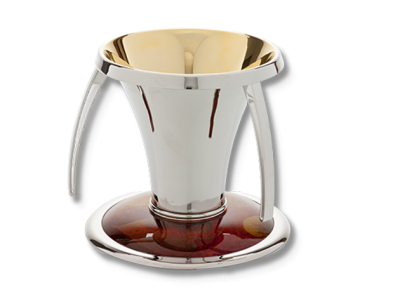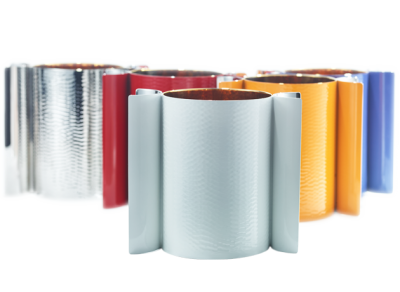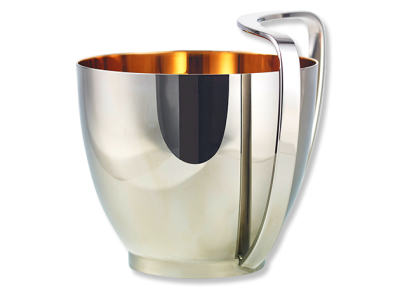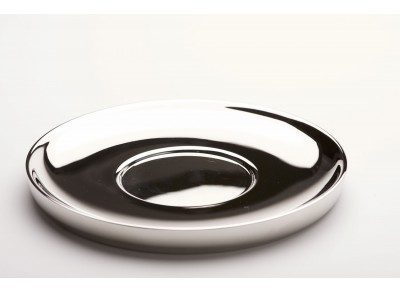Washing Cups
Each Washing Cup designed by Avi Luvaton is modern and innovative, yet a refined design.
Besides complying with the specifications that must be met in terms of Halacha (Jewish religious law) and made of rhodium plated brass with a classy inside gold finish, these pieces were created to perform beautifully the meaningful ritual of washing ones hands in order to elevate the Shabbat meal into a divine experience.
Each of these washing cups not only gracefully collects, carries and pours the purifying water as an essential preparation before blessing and eating the challah, it also serves as an ornament of Judaica that adds an artistic touch to any Jewish home, filling it with spirituality and self identity. The plates where the washing cups can be placed when not in use, feature customizable color backgrounds to match every house and style.
- $3,200
- $760
- $850
- $430
Netilat Yadayim: Washing Cup for Purification and Wisdom
The candles are flickering, inspiring traditional hymns have been sung and the recitation of Kiddush has been made for all the guests gathered around the lovely Shabbat table. Now it is time to begin the meal. But before that, there’s an important step: washing our hands through Netilat Yadayim, an essential preparation before blessing and eating the Challah.
Netilat Yadayim: Preparation and Purification
Washing ones hands, Netilat Yadayim before the blessing of the bread, is one more element that makes this moment and this meal with family and friends so special. It enhances that our table is an altar, and that bread, considered the supreme food of all foods and a symbol of physical sustenance, only deserves to be touched by purified hands.
Just as the Kohanim would wash before their daily service in the Temple long ago, so do we wash our hands before our holy meal, reminding us that we are all priests in the temple of our own homes and lives.
The unique experience of Netilat Yadayim
The time has come to fill a washing cup with water, pour it on both our hands one at a time, raise them (physically and spiritually) and let the water drip down. And so, while we recite the blessing, we might remember the symbolism behind this fundamental element of nature.
Water is the essence of physical life: without it we would die. At the same time, wisdom is the essence of spiritual life, the base of self-realization and self-growth. This way, water symbolizes the wisdom of the Torah.
Throughout this sacred ritual, the Natla cup plays a fundamental role: it is the container that collects, carries and pours the water that purifies our hands. It is the receptacle that allows us to accomplish this practice, to fulfill this Mitzvah through which we understand that all our interactions in the physical world need to be done in a conscious, wise and meaningful way.
 web solutions - Photography by Yaal Herman
web solutions - Photography by Yaal Herman


